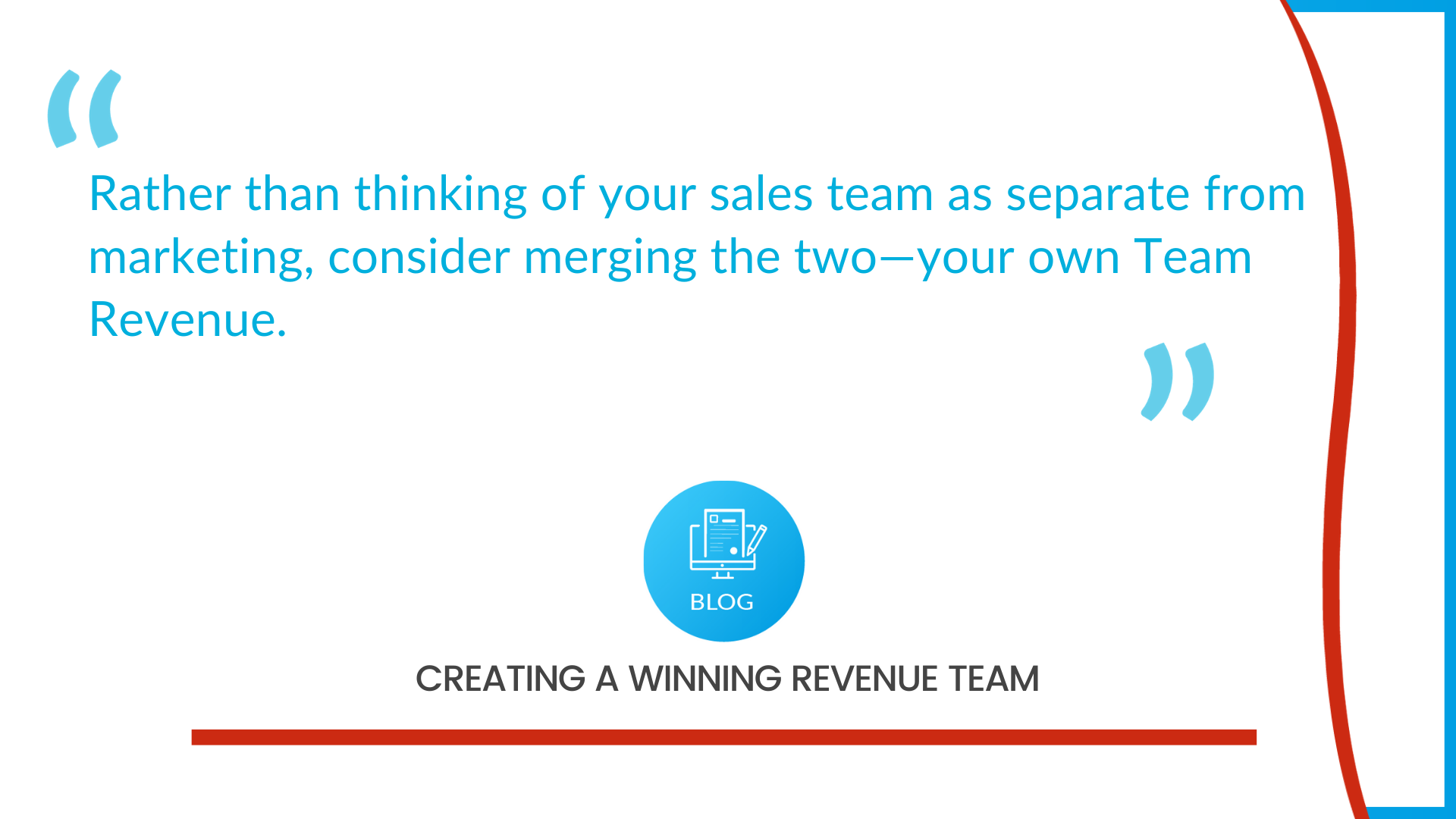Creating a Winning Revenue Team
Creating a Winning Revenue Team
Rather than thinking of your sales team as separate from marketing, consider merging the two—your own Team Revenue. This simplifies communication, creates a sense of one team working toward the same goal, and helps each team better understand what and how the other works. That can ignite new levels of collaboration and creativity—both required for successful marketing and subsequent prospect nurturing throughout the sales pipeline.
How and Where to Find your A+ Sales Team
That said, let’s focus on your sales organization. MSPs often struggle to find the right hunters for the sales team, but the process isn’t complicated.
What to look for:
- Engaged in the tech industry (they can talk the talk)
- Confident and up to a challenge
- A people person who isn’t afraid to start the conversation
- Technology savvy—don’t worry, you can train them
- Organized
Where do you find this creature? Start by leveraging your network.
- Share the opportunity on LinkedIn and Facebook
- Make sure your vendor partners know you are hiring
- Watch for layoffs or restructuring at your competitors
- Ask for referrals from your successful A players. Remember, those topnotch hires hang out with other successful professionals.
KPIs: Measuring Success from Marketing To Sales
Once you’ve built that amazing team of hunters, how do you know they are performing? Metrics are key at every level of business success, but for sales success, you need to look at how they take leads and convert them. Four areas to watch: self-generated leads, discovery appointments, opportunities uncovered and proposals delivered, and finally, closures.
The best way to set up your team for success is to make sure they have the information and training they need:
- Battle cards on each product or service
- Accurate data on your target customers
- Tools to support their efforts (check out advice in part 1 of this blog)
- Performance SMART goals
- An effective commission structure
Don’t forget that goals should be set as team—both for clarity and accountability. The time to raise questions—perhaps about realistic goals, territory or other concerns, the need for additional tools and support—is during that strategy session and not mid-year when numbers are low.
Commission Plans That Work. Plain and Simple.
Speaking of commission plans—inspiring and retaining your sales talent means paying them for success. Good commission plans balance base salary with an activity bonus, quarterly and annual accelerator, and a flat-fee per closure. Those plans also must align with your MSP’s overall company goals and targets; remember, one team—one goal works best.
Want to learn more about building your sales organization? Take advantage of Adam Slutskin’s course: Building and Leading a Successful Sales Team

